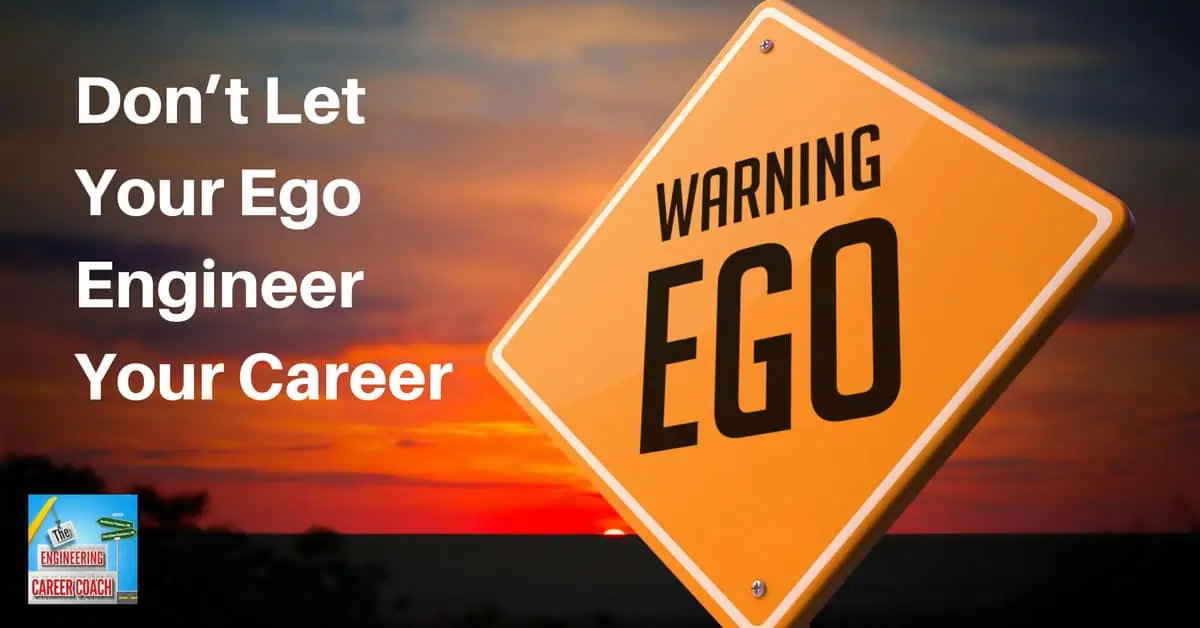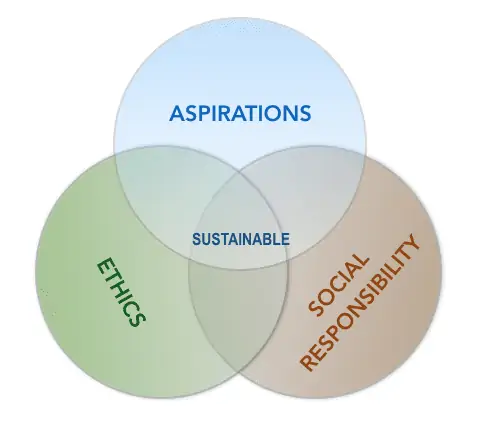Confidence, courage and passion are all items Anthony and I have written on before in our many articles over the years. Channeled in the right way, these personal characteristics will help anyone achieve a vision of future success. But left to their own devices, they can cause you a lot of challenge in both crafting and leading a successful career.
Look no further than the implosion of Enron or the Deepwater Horizon disaster to see what can happen when ego, ambition and drive are left to operate free of a moral compass or controls on goals. These are definitely outlier situations involving very large amounts of money and impacting thousands, if not millions, of lives.
So how does this apply to you sitting in your engineering job?
Ego Isn’t The Path
It wasn’t long ago I exchanged some communications with a young engineer who was expressing how much a colleague grated on his nerves. Turns out the colleague was an older engineer who, according to the younger engineer, always had an answer for everything. The older engineer was so audacious as to want to show the younger engineer different ways to approach design problems, as well as share previous designs.
The younger engineer thought this was stifling. Thought it was an affront to his knowledge and experience. Thought it was demeaning. So he asked me what I thought he should do to get the older engineer to stop.
I told him to quit being an ass and start listening. To put his ego in a sack and take advantage of the open willingness of a fellow engineer to share ideas and experience.
You see, we often can find ourselves in situations like this where someone is willing to share ideas, experience, and guidance; but we’re to stuck in our own greatness to listen. I know this affects a lot of engineers, because I too lived in this space early in my career. I had all the answers and I had a lot of drive.
But it wasn’t until later in my career that I realized fully that no one truly has all of the answers, regardless how much drive one might have.
All Thrust, No Vector
We used to have a saying in the Air Force: “all thrust and no vector”. This meant someone who had a lot of drive and energy, but didn’t have a clue about where they were headed or what they were doing.
This is how you operate when you let your ego guide your engineering career. You press on with high energy and the thought that you’ve got all the answers. You don’t stand on the shoulders of giants to move to the next level, you step on the heads of your peers and colleagues to grasp the next rung.
Ego isn’t just the realm of the wolves of Wall Street. It’s present in most engineering companies the world over.
You can have drive. You can have thrust. But you must have a vector, and that vector must be one that integrates a ethics, a moral compass and sincere interest in doing no harm.
Follow The Triple Bottom Line Approach
In the theory of sustainability you’ll find the Triple Bottom Line, which a way of viewing an organization’s performance in the areas of people, the environment (planet) and financial (profits). If an organization can hit the center of the Venn Diagram, then they achieve a sustainable business model. This in turn generates greater business value for customers and shareholders than the organization could ever hope to achieve by focusing on any single one component.
Because ego is so insidious and will always lurk in the recesses of your mind, I suggest adopting a triple bottom line approach to managing those lurking feelings of your own importance by thinking about these three areas of ethics, social responsibility and aspirations.
Ethics. As engineers – and certainly as P.E.’s – we are bound to follow ethical standards of conduct. These come from a variety of locations – state boards, professional organizations, etc. They also come from non-engineering sources such as our religion, youth organizations, or our family. Wherever they come from, make them a part of your personal armour against ego to keep you humble in your opinion.
Social Responsibility. Again, as engineers we have a pact with society to do our best in protecting them against poor designs and for making the lives of our fellow citizens of the world better. That’s big picture. The more immediate picture is the one in which you operate day-to-day: how you interact with your office mates; your older (or younger!) colleagues; your clients; your family; even the barista at Starbucks. In the end, you’re no better or worse than anyone else and it’s important to keep this in mind. As Ryan Holiday states in his book Ego Is The Enemy: “We will learn that though we think big, we must act and live small in order to accomplish what we seek”. This is especially true in our personal interactions. It is a paramount element of social responsibility that we not become a raging fan of our own awesomeness. Because it’s truly not that awesome.
Aspirations. Let’s be clear: aspirations are not in and of themselves bad. Having aspiration is a life force that drives people forward to make cutting edge advancements in science, exceptional engineering feats, complete degrees and earn a P.E. We all have them. We all need them. I believe aspiration is what keeps us alive, always moving forward. On a personal level, however, you must know why you hold the aspirations you hold and maintain a clear understanding of how you will achieve your aspiration without alienating or hurting others in the process. If you do nothing in this area of your triple bottom line, spend a lot of time with the question: So Why Do I Do What I Do? Stare at it. Journal on it. But know exactly why you are doing what you are doing and how it harmonizes with your ethics and social responsibility.
In this context, are you sustainable? Or is your ego telling you that this is all a waste of time and space on the Internet?
Onward,
Christian J. Knutson, P.E., PMP
Engineering Management Institute





